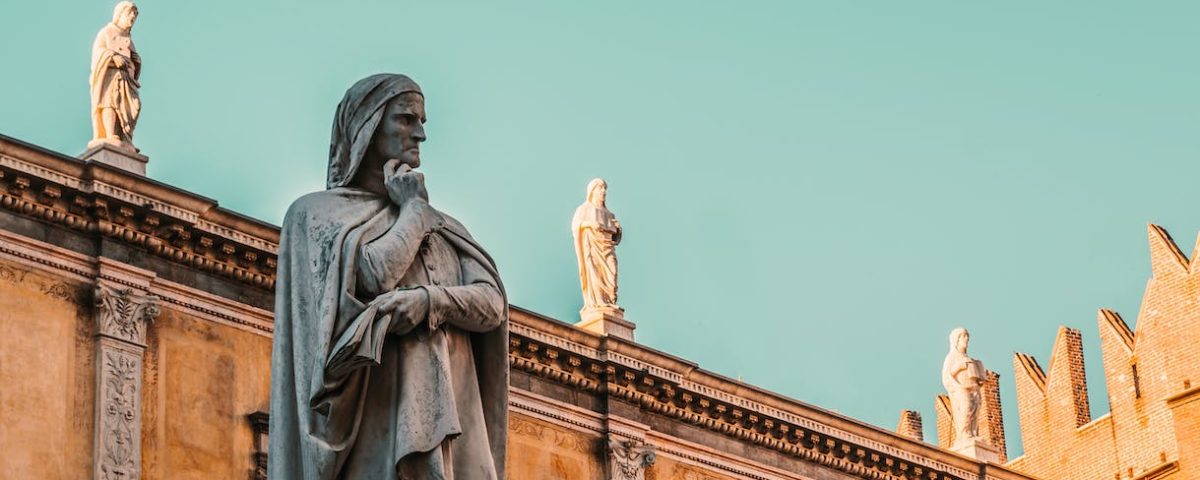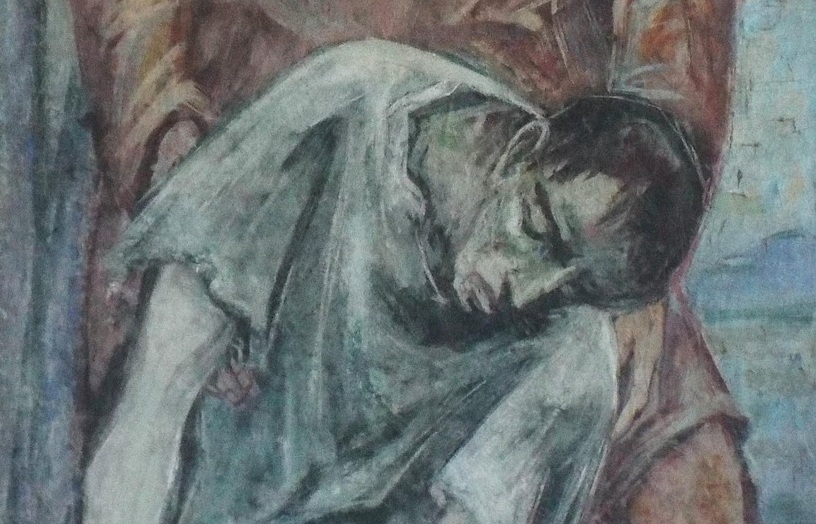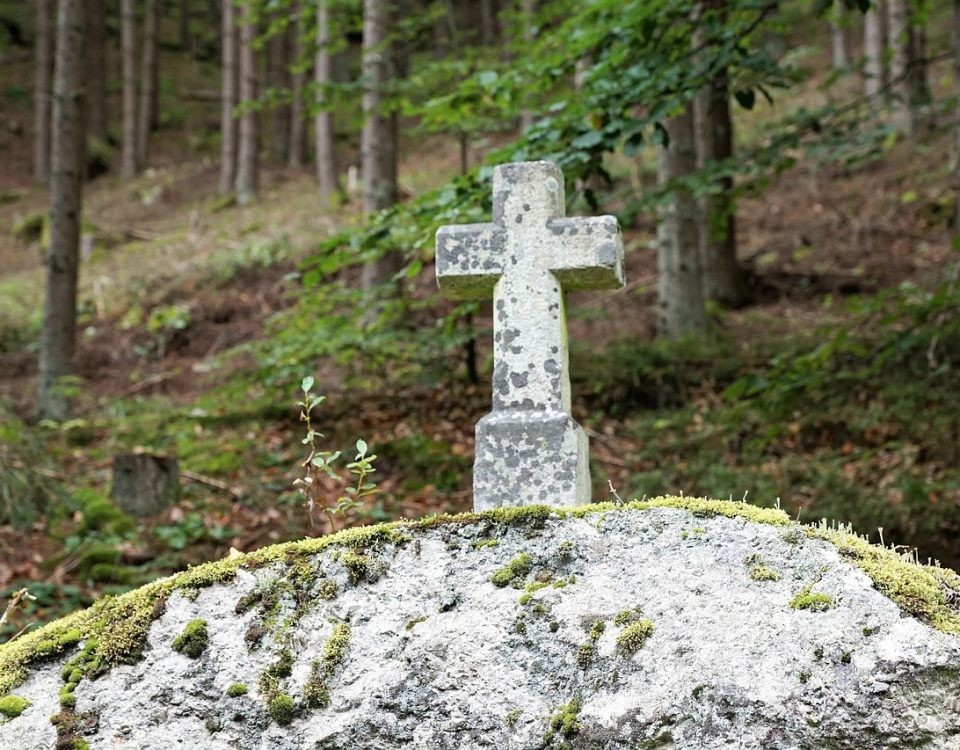You really should read Dante, his Divine Comedy.
It’s not difficult; it just takes time and silence, attention too. Don’t read it if you’re too young, however. Chances are you’ll not understand it if you do, or it’ll make you arrogant. That’s what I think, at least. I think it’s a text better saved for middle age. “Midway in the journey of our life/ I came to myself in a dark wood,/ for the straight way was lost” the whole thing begins.[i] Dante was talking about himself; it fits with the mind and wounds of a person with some experience. That’s at least what I think about it.
Anyway, the power of the thing is that it’s a poem that haunts and changes the reader, repeating its lessons over and over again throughout life. Take this week, for instance; take these texts from Amos and Luke. Reading them, I keep thinking of Dante: what I’ve read there, the punishment and the monsters of that work of fiction—the truth of it. Like that moment just before Virgil and Dante reach the river Styx in Canto VII, they come across Plutus, the demon-god of wealth and also those souls punished eternally for the sin of avarice, the sins of greed. What shocks Dante is how many there are: “Here the sinners were more numerous than elsewhere,” it says “They crashed into each other…shouting:/ ‘Why do you hoard?’ or ‘Why do you squander?’/ Thus they proceeded in their dismal round.”[ii] Also that moment, deeper down in Canto XVII where they come across the monster Geryon; this one’s really frightening, especially when you understand it. For on the surface, the monster is appealing, attractive; the rest of him, what remains hidden until it’s too late, is monstrous, deadly. “It had the features of a righteous man…but all the rest of it was serpent,” the poem reads.[iii] The monster symbolizes fraud; it’s fiction, but the truth is simple. Be careful of charm; be wary of what looks good on the surface; beware what wickedness may be hidden beneath. And be careful you’re not like this monster either; be careful you’re not a charming cheat; be careful you’re not rationalizing your way into the deepest eternal punishments. Fiction though this is, it tells a truth. Anyway, thinking of these texts from Amos and Luke, thinking how I have to preach to you: I don’t know, it’s just these fairy tales kept coming to me. Make of that what you will.
The lessons are simple. I’d risk being unfaithful to the Lord if I made it more complicated than it is. The poor are being cheated by the rich, and Amos the prophet sees it. It’s not just that they’re rich, they’re pious too. Religious, yet the scales, the weights and measurements have been corrupted somehow. The poor are not being compensated fairly for the work they’ve done, for what they’ve produced. Now, of course, how we translate that to today’s world is what’s so fraught; it’s when everyone gets mad at each other, when they tell me I don’t understand; I get it. And to be honest, it’s true most people in this room are smarter than I am on the topic. So, I’ll just tell you what I can tell you; it’s what Amos said, what God told him to say: “Never will I forget a thing they have done.”[iv] That’s something I can tell you—God sees you, so good luck and be careful. I trust you’ll make the right decisions worthy of the Lord, but it’s up to you. You’re in my prayers.
I’ve told some of you, I grew up not poor, more probably the low end of lower middle class—not here. My mom had my older sister when she was still a teenager; my parents got married in my grandparent’s living room—you know the story. My dad enlisted in the army, and that went well for a few years until the divorce. We moved down to Texas; my mom was our rock, our champion. But I remember the duplex; I remember the food; I remember my mother one night, undoubtedly stressed: she begged me with tears to stop playing so rough, because we didn’t have insurance and couldn’t afford the hospital. I’ll never forget her saying that to me; it changed me.
Now I don’t share any of this seeking your empathy. Ours is a good story. My childhood was such a happy thing; it was so filled with love. And there’s no way I’d be here without her and without those experiences. I just share it because you’ll understand how when I look at this beautiful community—gifted with so much and which is really the most generous and loving community I’ve ever known, a community that astounds me by the amount of good it’s done—still, you’ll understand how I see some here who do so well with their wealth while on the other hand I see some who just don’t, and how I fear for them. Some people in our community have changed lives and continue to change the lives of more people than they’ll ever know—simply by giving from the gifts that have been given to them, that God gave them to give. Some however don’t. That’s just the blunt truth of the matter. That’s what I’ve seen in this beautiful parish. There is a beauty here that’s real because it’s generous and a beauty here that isn’t real because it’s not generous, but rather, fearful, rational, greedy. What have you given to the poor? You good with God with that? What have you given to the Church, to this parish? Have you read Acts 4 and 5? I don’t know; I don’t want to get onto anyone. I simply want to thank and encourage the truly beautiful that are here, and lovingly warn the others. You’re all so beautiful. I just see some folks who could be even more beautiful.
Jesus said that you can’t serve both “God and mammon.”[v] You know what that means, or at least you should. You don’t need me harassing you about it. I just wanted to tell you about these monsters I kept thinking about this week—how I am still a little frightened by them and how I hope we can keep them at bay, because they may be more real than we think. Amen.
[i] Dante, Inferno i 1
[ii] Ibid., vii 25-31
[iii] Ibid., xvii 10-12
[iv] Amos 8:7
[v] Luke 16:13
© 2022 Rev. Joshua J. Whitfield










